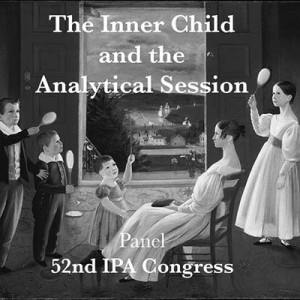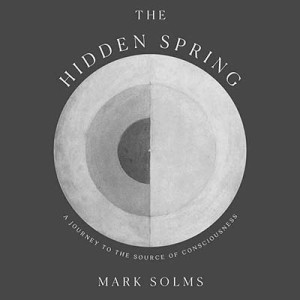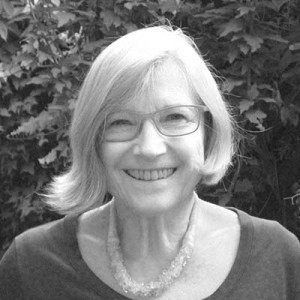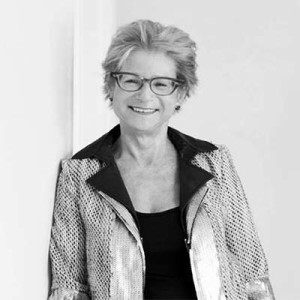Talks On Psychoanalysis
2021-05
Episodes

Monday May 31, 2021
Monday May 31, 2021
In the personality structure, there are always some child components, not only as the roots of personality but as active elements at any time. This panel shows some vicissitudes in working with the inner child in the analytical session. Three analysts from different regions and traditions will offer clinical vignettes and theoretical reflections on the subject.
Chair Abel Fainstein, Argentina
PresentersMelinda Gellman, United StatesSérgio Lewkowicz, BrazilAntonio Pérez-Sánchez, Spain
Please visit http://www.ipa.world/theinfantileonline to explore the extensive program and to register. The 52nd IPA Congress will be held online from July 21st to August 1st, and by visiting our program you can set your schedule to suit your personal time zone.
Abel Fainstein MD. Psychiatrist. Mag. in Psychoanalysis. Full Member, Training Analyst and former President of the Argentine Psychoanalytical Association. Former President of FEPAL. Former member of the IPA Board and Ex Com. Member of the Institutional Issue Committee and Advisor of the IRED. Konex Award in Psychoanalysis 2016. Private Practice. Supervisor. Professor at the Angel Garma Institute of APA and at the Universidad del Salvador, Buenos Aires. wwwabelfainstein.com.
Melinda Gellman is a graduate and faculty at New York University Postdoctoral Program in Psychoanalysis and Psychotherapy; faculty at the Institute for Contemporary Psychotherapy in New York City; and adjunct faculty at Austin Riggs Center in Stockbridge, Massachusetts.
Sergio Lewkowicz is training and supervising psychoanalyst of the Porto Alegre Psychoanalytic Society (SPPA). He was the Scientific Director of the Latin American Psychoanalytic Federation (FEPAL). He is professor and supervisor for psychoanalytic psychotherapy in the Psychiatry Department of the Medical School of the Federal University of Rio Grande do Sul. He was president and chair of the Institute of the Porto Alegre Psychoanalycal Society where he teaches regularly in a weekly basis. He was member of the Programme Committee of the 43rd Congress in New Orleans (2004) where he was the plenary session discussant of the Keynote Papers. He is a former member of the Publications Committee of the IPA (2001-2009), former member of the website task force of IPA (2012-2014). He is former Latin American Deputy Editor of the International Journal of Psychoanalysis and former Editor of the Psychiatry Journal of Rio Grande do Sul. He has edited and published several books and articles.
Antonio Pérez-Sánchez is a psychiatrist, training and supervising analyst at the Spanish Psychoanalytical Society (SEP). Past president of SEP (2008–2011). He is the author of five books. His last two books are The Psychotic Organization of the Personality (2018) and Interview and Indicators in Psychoanalysis and Psychotherapy (2019, 2ª Edition in Spanish, and in English in 2014). He is chair of the Sponsoring Committee of the IPA for the Portuguese Study Group, Nucleo Portuguese de Psicoanalisi, and member of the European team of the IPA-Interregional Encyclopedic Dictionary.
The Children of Nathan Starr (1835) Ambrose Andrews. Courtesy Met Museum, New York.

Sunday May 23, 2021
Sunday May 23, 2021
In today’s episode, Mark Solms generously summarizes his latest book “The Hidden Spring: A Journey to the Source of Consciousness” and highlights -in ten clear principals- his thoughts. He shows us how the source of consciousness is deeply bound up with our affects, and traces the key concepts of Psychoanalysis in light of the most recent neuroscientific discoveries. In this work he not only unveils those experimental confirmations that Freud himself hoped for since the beginning of his theories, but also arrives -with an admirable clarity- to specify some evolutionary junctions for the current psychoanalytic models.
Mark Solms is a South African psychoanalyst and neuropsychologist who is known for his discovery of the brain mechanisms of dreaming and his use of psychoanalytic methods in contemporary neuroscience. He holds the Chair of Neuropsychology at the University of Cape Town and Groote Schuur Hospital in the Departments of Psychology and Neurology, and was the President of the South African Psychoanalytical Association. He is also Research Chair of the International Psychoanalytical Association (since 2013), he founded the International Neuropsychoanalysis Society in 2000 and was a Founding Editor of the journal Neuropsychoanalysis. He is is also Director of the Arnold Pfeffer Center for Neuropsychoanalysis at the New York Psychoanalytic Institute, as well Director of the Neuropsychoanalysis Foundation in New York, a Trustee of the Neuropsychoanalysis Fund in London, and Director of the Neuropsychoanalysis Trust in Cape Town.
REFERENCES
Solms, M. (2021) Revision of drive theory. Journal of the American Psychoanalytic Association (JAPA)
Solms, M. (2020) New project for a scientific psychology: General scheme. Neuropsychoanalysis 22:5-35
To contact the author directly please email him at mark.solms@neuropsa.org

Monday May 17, 2021
Monday May 17, 2021
In this episode, Angelika Staehle, current chair of the IPA Psychoanalytic Education Committee, presents the approach and results of their new project “Meetings of Societies on Education“. The project is an innovative response of the IPA to the need for a means of implementing a collegial quality enhancement of psychoanalytic education as an alternative to oversight. The goal is to enhance creative self-reflection within and among Institutes on what we want to transmit to the newer generations of psychoanalysts. PEC will continue these meeting of Societies as a permanent offering to all IPA Component Societies.
Angelika Staehle is a Clinical psychologist, Training Analyst for Child-, Adolescent- and Adult Psychoanalysis (DPV /IPA) and for Group-Analysis (GAS/London, D3G). For many years member of the executive board and director of training for adult- and child analysis in the DPV. Currently, chair of the psychoanalytic education committee/IPA. She works in full private psychoanalytic practice with children, adolescent and adults, individually and in groups.
Her publications focus on: Psychoanalytic technique, especially disturbances of symbolisation of children, adolescents and adults, integration of adult- and child- analysis, group processes in Institutions, psychoanalytic education.
Link to the paper in English, German, French and Spanish.
This episode is available also in German

Monday May 10, 2021
Monday May 10, 2021
Martina Burdet is a training analyst for the Psychoanalytic Association of Madrid and member of the Psychoanalytic Society of Paris. She is the Chief Executive of the e-journal Psychoanalysis.today, former General Secretary of the EPF and the Current Chair of its Working Group on Remote Analysis.
Her book, Love in the Time of the Internet – Do you l@ve me or do you follow me? was written as a response to the increasing number of patients she has seen over recent years who are experiencing problems in their lives – problems that seem to come at the crossroad between the intrapsychic world and the social environment, digital revolution and virtual reality. She wrote the book as a psychoanalyst for psychoanalysts, but it is also intended for a wider public interested in psychoanalysis. In it, she combines psychoanalytic theory with what she calls ‘Ordinary Stories’; that is, stories of patients who describe how they can – or actually, how they cannot – love in the time of the Internet.
This episode is available also in French

Tuesday May 04, 2021
Tuesday May 04, 2021
The work proposes that the contemporary analyst can and should listen to the varied languages of man and, with a specific technical stance, help the patient, through intermediary moments, to think what was unthinkable, to name what was unnameable. It departs from listening to the language of the non-symbolic, which depends on the analyst’s capacity for reverie and their capacity to metaphorise the patient’s reports, to propose instead the construction of symbolic forms through the use of scaffolding for thinking. This is what permits the historicising, the placing of the patient’s life in a narrative. If this does not take place, there is an eternal presentification of the traumatic emotional experience, resulting in the “murder of time” (Green).
Ruggero Levy is a Psychoanalyst, Full Member and Training Analyst of the Psychoanalytic Society from Porto Alegre (SPPA), Brasil; Former President of SPPA; Chair of the IPA Working Parties Committee; Keynote paper/Major Lecture at the 50th IPAC in Buenos Aires, 2017; Ex-IPA Board Member from 2011-2013 and from 2013-2015; Professor and supervisor of the Federal University of Rio Grande do Sul in the Courses of Specialization on Children, Adolescent and Adult Psychotherapy; Author of many book chapters and scientific papers published in regional, national and international psychoanalytic reviews.
This episode is available also in Portuguese
Ruggero Levy (2019) The polyphony of contemporary psychoanalysis: the multiple languages of man, The International Journal of Psychoanalysis, 100:4, 656-673, DOI: 10.1080/00207578.2019.1636251
Pair of Transverse Flutes, mid-18th century, Johann Wilhelm Oberlender (the Elder) Courtesy Met Museum, New York.